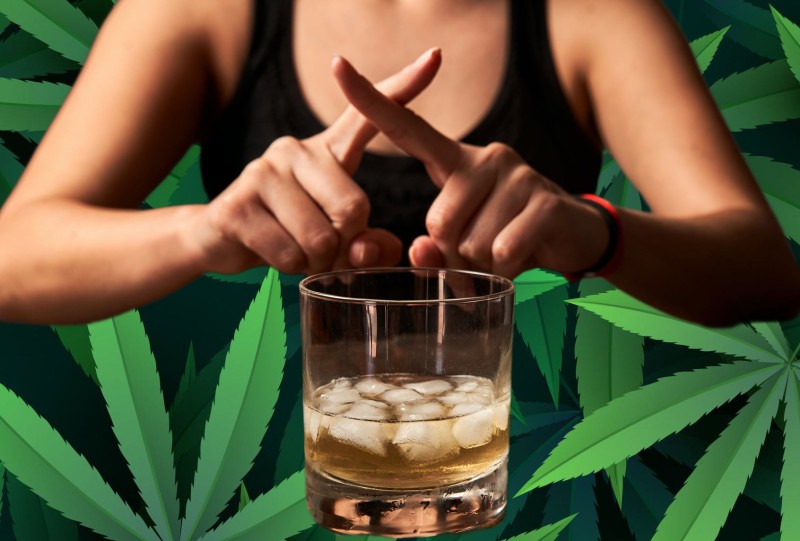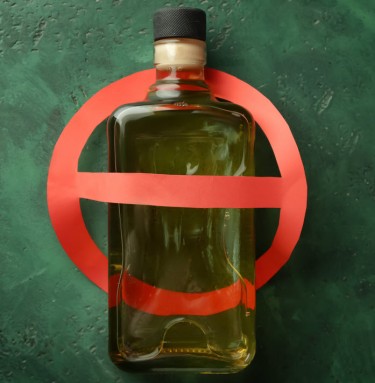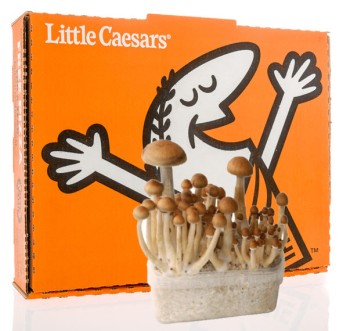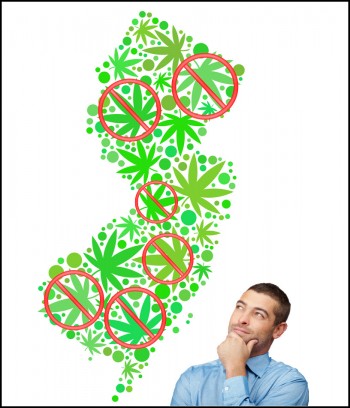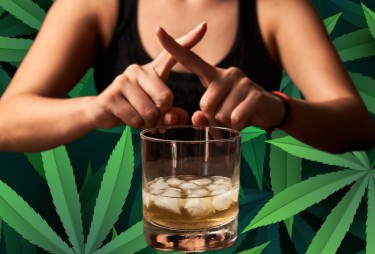
A recent analysis by TD Cowen's analyst, Vivien Azer, sheds light on a shift in consumer behavior, highlighting the competition between legal cannabis and alcohol sales.
Over the past five years, alcohol sales in states where cannabis is legal have lagged behind by 100-150 basis points, according to Azer.
In terms of future growth, Azer's research, initially reported by the Green Market Report (GMR), predicts a substantial surge in U.S. cannabis sales, reaching $29 billion by 2023. This growth is expected to maintain a robust 7% Compound Annual Growth Rate (CAGR) over the next five years.
As the first senior Wall Street analyst to cover the emerging cannabis industry in 2014, Azer envisions a paradigm shift, anticipating the cannabis sector to attract 18 million new users while potentially experiencing a decline of 2 million alcohol users.
The report highlights Colorado as a leader in evolving consumer preferences, securing an 11% market share for cannabis, a notable increase from a mere 4% five years ago.
Azer emphasizes a significant trend, with two-thirds of cannabis consumers admitting to reducing alcohol consumption. In the 18 to 25-year-old demographic, cannabis retention rose to 68%, while alcohol dipped to 74% in 2022.
States with legal cannabis access were found to underperform by over 100 basis points, according to U.S. Bureau of Economic Analysis (BEA) data. The report indicates a 140 basis points difference in select Nielsen states, while the 5-year alcohol volume Compound Annual Growth Rate (CAGR) for adult-use cannabis states lagged behind non-cannabis states by 150 basis points in IWSR data.
Market opportunities and stock implications align with this transformative trend. Azer suggests short-term resilience for alcohol stocks but warns of potential impacts on beer preferences among recent cannabis users, which have dropped by six points. On a positive note, spirits like tequila and bourbon are expected to thrive in this evolving market.
The analysis draws from the National Survey on Drug Use and Health, revealing that over 47% of past-month cannabis consumers use cannabis almost daily. Azer notes that past-month cannabis users who drink alcohol are more likely to intentionally abstain from drinking compared to those who have never used cannabis.
Azer also points to declining soda consumption and increased scrutiny of energy drinks, creating potential growth avenues and offering investors new entry points into evolving markets.
Looking ahead, the cannabis industry is projected to experience an 11% growth in 2023, in stark contrast to the more modest 3% growth expected for alcohol. Azer forecasts total U.S. legal cannabis retail sales to reach $37 billion by 2027.
Alcohol Sales Underperform in Legal Cannabis States
The comprehensive analysis conducted by TD Cowen analyst Vivien Azer underscores a consistent underperformance of alcohol sales in states where cannabis has achieved legal status, revealing a nuanced clash between these two major consumer industries. Over the past half-decade, Azer's research indicates a significant lag of 100-150 basis points in alcohol sales within these cannabis-legalized states. This noteworthy trend challenges conventional expectations regarding the relationship between legal cannabis and alcohol consumption, raising questions about the potential impact on the alcoholic beverage industry.
The discrepancy in sales figures prompts an exploration of the factors contributing to this underperformance. A variety of elements, including shifting consumer preferences, cultural changes, and evolving societal attitudes toward substances, could be at play. Azer's findings suggest that as cannabis gains mainstream acceptance, it may be diverting consumer spending away from traditional alcohol purchases. Understanding the nuances of this underperformance is essential for stakeholders in both the cannabis and alcohol sectors, as it hints at a broader shift in consumer behavior that extends beyond mere legal compliance.
This trend also opens the door to considerations of regulatory and market dynamics. As legal cannabis becomes more accessible, policymakers and industry players may need to reassess existing regulatory frameworks and marketing strategies within the alcohol sector. The data underscores the importance of adapting to changing consumer preferences and highlights the potential need for strategic adjustments within the alcoholic beverage industry to remain competitive in the evolving landscape shaped by the legalization of cannabis.
A Leader in Cannabis Market Share
Colorado emerges as a trailblazer in the evolving landscape of legal cannabis, securing a remarkable 11% market share for cannabis—a substantial leap from a mere 4% just five years ago. This shift positions Colorado as a vanguard in understanding and capitalizing on changing consumer preferences. A closer examination of Colorado's success offers valuable insights into the factors that contribute to the state's prominence in the cannabis market.
One key aspect contributing to Colorado's leading role is its early and comprehensive adoption of legal cannabis measures. Being among the first states to embrace cannabis legalization, Colorado has cultivated a mature and diverse cannabis market that caters to a broad spectrum of consumers. The state's regulatory framework, licensing structure, and proactive approach to addressing challenges have fostered an environment conducive to the growth of the cannabis industry.
Beyond regulatory factors, Colorado's success can also be attributed to a cultural shift and increased social acceptance of cannabis. The state has become a focal point for cannabis tourism, attracting consumers from across the country. Understanding the unique dynamics at play in Colorado provides valuable insights for other regions considering or undergoing cannabis legalization. As other states explore similar paths, the lessons learned from Colorado's experiences could shape the future of the legal cannabis market on a broader scale.
Bottom Line
In essence, Vivien Azer's analysis illuminates a significant shift in consumer behavior, with legal cannabis impacting alcohol sales in cannabis-legalized states over the past five years. The underperformance of alcohol sales by 100-150 basis points prompts a critical exploration of the factors contributing to this trend, suggesting a potential redirection of consumer spending fueled by shifting preferences and societal attitudes toward substances. Colorado's remarkable ascent to an 11% cannabis market share stands as a testament to the success of early adoption and comprehensive regulatory measures, offering valuable insights for other regions navigating the evolving cannabis landscape. As the cannabis industry continues to mature, this transformative trend underscores the need for strategic adjustments in regulatory frameworks, marketing strategies, and product offerings within both the cannabis and alcohol sectors, shaping the future dynamics of these closely intertwined markets.
THE DECLINE OF DRINKING, READ ON...
NO MORE BOOZE IN THE FUTURE? - TRENDS SAY CANNABIS WILL TAKE OVER!

